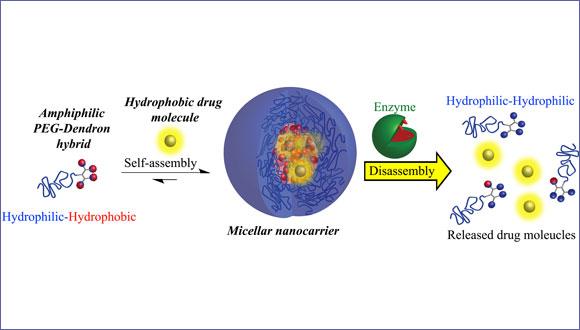Polymers
Polymers or macromolecules are giant molecules composed of simple repeat units. The character of the repeat units and the way they are connected to each other determine the physical properties of the polymer and thus its possible applications.
The roots of polymer science lie in the 19th century with the development of the semi-synthetic rubber and celluloid. The immense scientific and technological development that took place in the 20th century, led to the now familiar plastics nylon, polyester, polyethylene, polypropylene, PVC, polystyrene, etc. These materials found diverse industrial and household applications, which no other material can accomplish.
The current challenges in this field include the synthesis of environmentally-friendly materials, and the design of sophisticated materials by controlling the microstructure of the polymeric chains. Several research groups in the School of Chemistry of Tel Aviv University are involved in polymer science research. Their achievements include the development of dendrimers for specific catalytic applications; the self-decomposing dendrimers and polymers which find use in drug release and delivery; the design of smart amphiphilic hybrids as micellar nano-carriers; and the design of organometallic catalysts for controlling the stereo regularity of polypropylene and the environmentally-benign poly(lactic acid).
Researchers:
Prof. Amir Roey, Prof. Diamant Haim, Prof. Dobrovetsky Roman, Prof. Kol Moshe, Prof. Portnoy Moshe, Prof. Shabat Doron, Dr. Sitt Amit, Prof. Vigalok Arkadi.
Emeriti:





